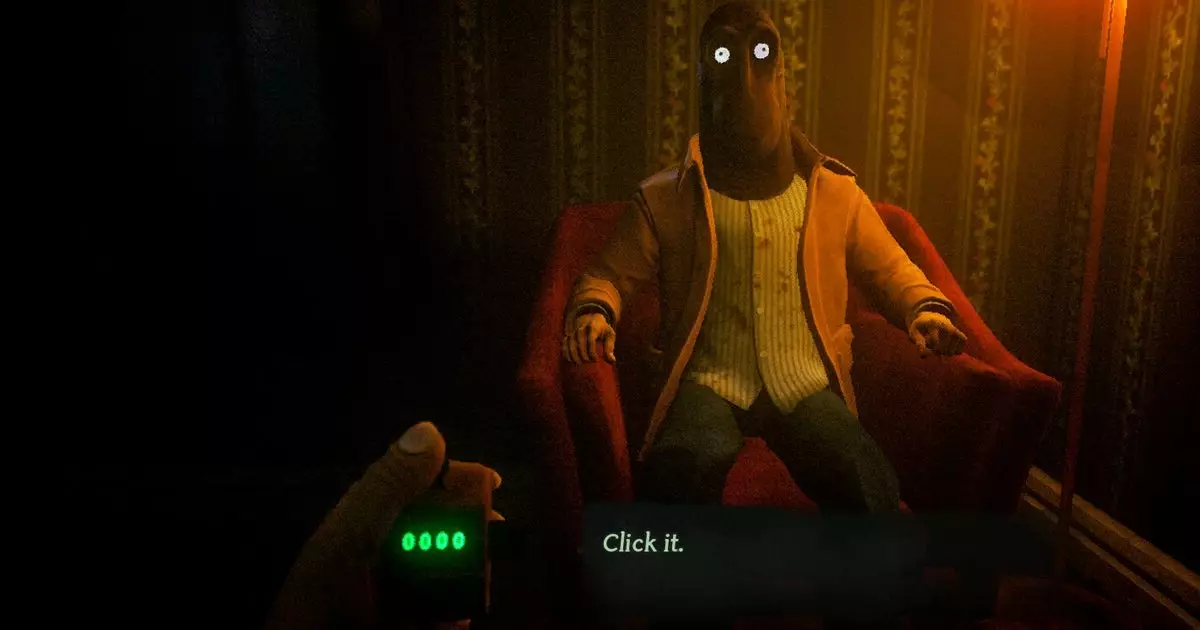Imagine starting a game called Clickolding and finding yourself staring at a man whose mask resembles a botched carving of Joe Camel. The unsettling gaze from his googly eyes demands that you click. The game prompts you to click a thousand times before receiving a reward. As you ponder this strange scenario, you are left wondering: Will you actually subject yourself to clicking hundreds of times just to satisfy your curiosity?
As you mindlessly click away, the man occasionally speaks, leading you to develop superstitious rituals around the clicker. You experiment with clicking faster or holding down the space bar to automate the process. The background jazz music tries to lull you into a sense of calm, but the relentless clicking keeps you on edge. You find yourself deeply engrossed in this monotonous task, timing your clicks and realizing the sheer amount of time you have spent clicking away.
Despite the pun name and the bizarre dynamic between you and the man on the screen, it becomes clear that you are the one being manipulated in Clickolding. The game becomes a form of self-imposed BDSM, where each click feels like a humiliating act. It’s a strange blend of guilt and gratification as you continue clicking away, knowing that you are willingly subjecting yourself to this torturous experience.
Clickolding may be a quirky game, but its ability to ensnare players in a cycle of clicking speaks to a deeper psychological undercurrent. It forces players to confront their own willingness to engage in repetitive and seemingly pointless tasks. While the game may not offer much in terms of gameplay or depth, its unique approach to player engagement cannot be denied. Ultimately, Clickolding serves as a reminder of the ways in which games can challenge our perceptions and push us to the limits of our patience.
Clickolding may not be for everyone, but for those willing to embrace its peculiar premise, it offers a strangely captivating experience. Just remember to give your hands a rest after all that clicking.


Leave a Reply